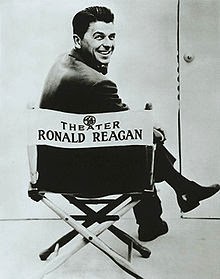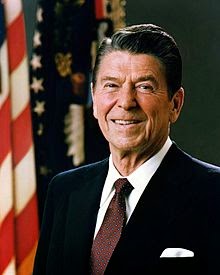A tragic day in history is this day in the year 1968 at the hands of an assassin. A life cut short. A legacy remembered. Then, the loss of another on this day in 2004. A life long lived. A legacy remembered.
This Day in History: June 5 & 6
Robert Francis Kennedy
November 20, 1925 – June 6, 1968
November 20, 1925 – June 6, 1968
 |
| Victory Celebration |
Kennedy's life and vision of victory was short-lived. As he passed through a hotel service hallway, a short cut to where the press were waiting, shots rang out. So much hope died. So much despair prevailed. Yet, the last words RFK said were not about himself, "Is everybody all right?" Indeed, five other people had been wounded by who was later identified as Sirhan Sirhan, a Palestinian extremist.
While Kennedy was shot on June 5, 1968, the shots were not immediately fatal. He died in the early hours of June 6, 1968. He was 42 years old. Senator Robert F. Kennedy is laid to rest at Arlington National Cemetery in Virginia, just 30 yards from the grave of his assassinated older brother, President John F. Kennedy. Although his life was cut short, Robert Kennedy's vision and ideals live on today through the work of his family, friends and the Robert F. Kennedy Memorial (also known as the RFK Center for Justice and Human Rights) in Washington, D.C.
 |
| Ronald Reagan as the host of General Electric Theater |
Do you remember General Electric Theater? If your answer is 'yes', then you remember Ronald Reagan, the actor. Having initially chosen a career in entertainment, Reagan appeared in more than 50 films as "second lead" but never achieved stardom. While in Hollywood, Reagan served as president of the Screen Actor's Guild and met his future wife, Nancy (Davis) Reagan. In the late 50s, film roles began to dwindle so he turned to television. Thus, his role as host on General Electric Theater, an American anthology series. Ronald Reagan hosted the show for eight years during which time he estimated visiting 135 GE research and manufacturing facilities, and met over a quarter-million people. He also spoke at other forums such as Rotary clubs and Moose lodges.
Ronald Reagan became known as "The Great Communicator" because of his oratorical prowess,
often crediting acting and speaking engagements as helping him develop his public
speaking abilities.
 |
| Ronald Reagan, 40th President of the United States Image Source: en.wikipedia.org |
Of course, the legacy of Ronald Reagan is not about acting but his service to America, two terms as the 33rd Governor of California (1967–1975) and two terms as the 40th President of the United States (1981–1989). Reagan's terms as governor helped to shape the policies he would pursue in his later political career as president. During his terms as President, he is remembered for restoring American confidence after the problems of the 1970s and helping defeat communism. His terms in office, known as the Reagan Revolution, aimed to reinvigorate the American people and reduce their reliance upon Government. At the end of his two terms, Reagan felt he had fulfilled his campaign pledge of 1980 to restore "the great, confident roar of American progress and growth and optimism."
Known as the Great Communicator, Reagan left the Oval Office as one of the most popular presidents in history, retiring to his much-loved California ranch, Rancho del Cielo. His announcement in 1994 that he had been diagnosed with Alzheimer's disease was greeted with great sadness by many across the country. He wrote, in an open letter to the American people, I now begin the journey that will lead me into the sunset of my life. I know that for America there will always be a bright dawn ahead.
Source: This Day in History
On June 5, 2004, Ronald Wilson Reagan lost his battle with Alzheimer's disease. He is laid to rest at the Ronald Reagan Presidential Library in Simi Valley, California. Reagan's vision of liberty still guides us today.



No comments:
Post a Comment